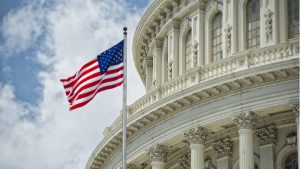The California Department of Technology (CDT) and Department of General Services (DGS) hosted their annual IT Vendor Forum last week, with the state’s week-old announcement of an IT spending freeze casting a considerable pall over the 300 or so interested virtual attendees from the state IT vendor community.
The North American Aerospace Defense Command (NORAD) confirmed it will once again track Santa’s Christmas journey this year, marking its 68th anniversary of tracking Santa’s whereabouts as he and his reindeer travel around the globe on Dec. 24.
Four state and local government (SLG) agencies have partnered with the General Services Administration (GSA) to start sending customized text messages for application deadlines, interview reminders, fraud reduction, and other critical service updates to people who opt in as well as their own agency staff.
The National Association of State Chief Information Officers (NASCIO) has released a new AI blueprint which features 12 key considerations to help states during the development their own AI technology roadmaps.
Texas’ San Isidro Independent School District is using funding from the Federal Gaining Early Awareness and Readiness for Undergraduate Programs (GEAR UP) grant program to bring virtual reality technology into its middle and high school classrooms.
A group of higher education academics said on Monday that while artificial intelligence (AI) does have its risks, universities and schools should be leveraging the tool to maximize student learning.
Ahead of the 2024-2025 school year, the North Carolina State Board of Education has approved a new round of grant funding to support the state’s Digital Learning Initiative.
Thanks to a new piece of legislation being signed into law, the Illinois Department of Professional Regulation (IDFPR) will be able to use a competitive, expedited process to identify and implement a new professional licensing system.
With the new year just a few weeks away, the National Association of State Chief Information Officers (NASCIO) has released its list of top priorities for state CIOs in 2024. For the first time ever, digital government services and cybersecurity tied for the top priority spot.
Tarek Tomes, who serves the North Star State as the Commissioner of Minnesota IT Services (MNIT) and state Chief Information Officer (CIO), has adopted a unique formula for assessing state priorities for IT modernization efforts among state agencies.












